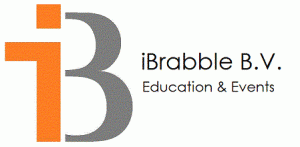
Knowledge preservation strategies can keep senior employees’ acquired wisdom from walking out the door when they retire.
When retirees walk out the door, they take with them everything they’ve learned on their jobs. Their replacements must slowly regain the on-the-job knowledge the ex-employees spent years accruing.
In the Project Freight industry where special technical and operational information is the norm, a retiree may be the only person who knows how to operate certain processes.
To prevent valuable information accumulated on the job through the years from getting lost in the transition, companies are finding ways to retain employees’ know-how and best practices so that the information can be passed on to future employees. Tapping into — or capturing — and documenting employee knowledge takes a lot of effort. Some companies interview employees and keep written records of their answers. Others make employees the stars of their own “how-to” videotapes. Still others encourage employees seen as experts in specific areas to mentor other staffers or to remain on call after their departure dates.
In addition to capturing directives for performing everyday tasks, most of the methods apply to the transfer of so-called soft knowledge only, such as tips and tricks that no written manual is likely to include and that the departing employee often doesn’t think to pass on.
Why are companies focusing on knowledge capture now?
Many experts point to the baby boomers now reaching retirement age, saying information will be walking off the job with them. We’re now retiring the first generation of professionals and managers who have deep knowledge of certain management practices, technical fields, and complex and procedural structures. How a company implements a knowledge capture program depends on its structure, size and specialty as well as its business practices.
A company can contract with a knowledge gathering consulting firm whose employees capture and formally record the sometimes-amorphous information departing employees have learned on the job.
The majority of important knowledge in an organization is in somebody’s head. And too often you really don’t know what you have until you’ve lost it. The focus should be on the difficult and complex stuff people do. That is not the same as detailing procedures that could be collected and made easily clear.
Exchange of Ideas
Though companies like iBrabble B.V. in The Netherlands have created a number of traditional knowledge management tools, the latest measure taking slightly different methods than previous projects. Last year, iBrabble spearheaded a Learning Marketplace. The effort combines mentor and trainee exercise with a searchable database filled with best practices and useful information that is gathered and documented beforehand.
To launch this project, iBrabble has been looking at the Project Freight and Heavy Lift business sectors where we see a high number of retirements in the near future. The company hired a consultant to assist in analyzing the data.
In the above sectors, the number of employees is dwindling because of retirement as well as layoffs due to the economy downturn. To mentor new employees as well as other employees looking to change jobs or pick up knowledge, trainees can soon log on to the learning marketplace site to ask mentors questions. The discussions are then stored on the site for future reference.
Although most of this is done online, and it’s much more valuable than a document in many cases. With the iBrabble mentor program, a lot of people benefit since more are working from their home office and the program can be completely virtual.
But for all the efforts companies are making to gather the knowledge of retiring employees, some say organizations need to do even more. There are genuine concerns that employees won’t refer to static documents, whether stored as online discussions or as written reports. There is skepticism that new employees to a position will replay online videos.
iBrabble also uses other methods to retain retiree knowledge, such as conducting exit interviews and asking ‘soon departing’ employees to train replacements.
Face to face training programs are just as important to your staff as any of the previous solutions and for that reason iBrabble is also engaged in the design and conducting a wide variety of seminars that are valuable to your staff and where they not only get the knowhow from your eventually departing seniors, but also additional knowledge and experiences from others in the industry.
One of these programs is the Project Freight Management 2-Day course that is next given before the BreakBulk event in Houston in the week of September 26th.

“You don’t want valuable information to walk out the door”
